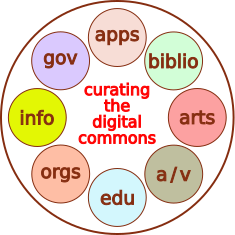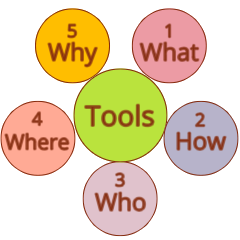User:Robbie



- My user page
- Notes to myself
- Draft book proposal to Princeton University Press
- Forms for page setup
- Links to apps go here
If Franklin Were Here . . .
When the Constitutional Convention completed its work, a well-wisher ask Benjamin Franklin what form of government, monarchy or republic, the new Constitution would establish for the United States. He replied, “A republic, Madame, if you can keep it.”
On this substack, we study what Benjamin Franklin then foresaw in adding “if you can keep it” to his response. With Franklin, we ask, How might we, the American people, eventually lose our republic? What must we the people do to keep it? To start, let’s attend closely to a short speech Franklin had given a couple hours before voicing this doubt that we could keep our republic they were then engaged in creating for us.
* * *
In late February, 1787, the Continental Congress had voted to set up a convention to revise the Articles of Confederation to strengthen their cetral governing powers. 12 of the 13 states elected slates of delegates by various procedures. By mid May, the delegates had begun to assemble in Philadelphia, starting to deliberate officially late that month. 55 delegates took some part in deliberations, of whom a number left for various reasons, personal and substantive, with 39 signing the draft Constitution on September 17th.
Among the delegates, George Washington, then 55, and Franklin, then 81, both immensely experienced and world famous, imparted a sense of gravitas to the Convention in public opinion. The delegates unanimously elected Washington to serve as president of the Convention, a role he performed with asiduous impartiality. Franklin, a delegates from Pennsylvania, served quietly, speaking up as needed to preserve the inclusive sense of unity among the delegates by promoting compromises when serious deadlocks were potentially arising. Younger, then less prominent delegates like James Madison, shaped the substantive course of deliberations.
Through the summer of 1787, the delegates had deliberated about governing powers and their checks and balances. They worked through specifics, and arrived at a consensus on each; in August, they consolidated the particulars into a working draft; and in early September, they polished the text for style. Mid September, the time to conclude had arrived. A few delegates opposed the draft and a few more wavered, but most believed they had achieved their common purpose—to replace the Articles of Confederation with a new Constitution, based on the sovereignty of the people, and to establish a strong central government, one that could act wisely and vigorously within the nation and for the nation within the world.
On the 17th, Franklin had a short speech read out on his behalf initiating the signing of the Constitution by the assembled delegates. It ended, “I hope therefore that for our own sakes, as a Part of the People, and for the sake of our Posterity we shall act heartily and unanimously in recommending this Constitution, wherever our Influence may extend, and turn our future thoughts and Endeavours to the Means of having it well administered.”
This ending makes a good place to start our reflection on Franklin’s speech because it makes clear what Franklin’s purpose was in giving it on this occasion. Here Franklin stated that their forthcoming act originating the Constitution would serve the benefit and interest of two distinct groups—an immediate one, the delegates and the People of whom the delegates were a Part, and a more distant one, “our Posterity,” we the people in futurity.
Franklin was not memorializing for the ages the virtues with which the delegates had drafted a great document for the ages. What Franklin said in the speech had some relevance for the immediate audience, the delegates “as a Part of the People,” asying they needed to doubt their own infallibility and mind public opinion in the coming debates during ratification. But in the immediate, little was at issue and what Franklin said about it would be closed off in the Convention proceedings, confidential until after ratification had succeeded or failed. His immediate audience provided Franklin the occasion to discuss the problems of keeping the Republic, which they were then originating, so that posterity, with the loss of the Republic imminent, might better understand their situation in order to forestall it.
With that purpose in mind, let’s attend to what Franklin said. His speech had 2 paragraphs, the first rather introductory, stating and illustrating the open-minded disposition that he highly valued, a pre-partisan mindset essential in preserving a political order over time. The 2nd paragraph, twice the length of the first, developed the concerns and ideas with which Franklin wanted to confront the People in Posterity as they risk loosing their Republic. Here’s how he spoke to the delegates, addressing George Washington, the President of the Convention.
Franklin had favored a unicameral congress and a 5-person executive that lacked veto power. Since approving this Constitution would create something enduring, his current disapproval was not basis for registering his disapproval, for his experience made him aware that he sometimes changed his mind on important matters and hence he could not say he would always disapprove it. Here Franklin suggests that because he is not sure he will always disapprove the present Constitution, he will doubt his negative judgments and give more creedence to the judgment of others.
Appreciations: Reflections on Formative Influence
My Canon
Robbie McClintock
- my narrative bio
- Narrative_bio_DC
- my full cv
- Links to my writing
- A Timeline of My Life and Work
- Finding an Appropriate Literary Agent
- Researching Potential Publishers
- MediaWiki Extensions
- PDF Reader
- Scratch3
- My lingo 2025
- Biographical highlights
- No NavBlock
Robbie's writing
- 1960 An Excerpt from My College Journal
- 1964 Review of Other Schools And Ours
- 1965 The Philosophy of Culture: A Study of Humanistic Pedagogy
- 1966 Machines and Vitalists: Reflections on the Ideology of Cybernetics
- 1968 Architecture and Pedagogy
- 1968 Purposes: Eight Reflective Essays
- 1968 Nettleship on Plato's Pedagogy
- 1969 The End of an Order
- 1969 The Spanish Press
- 1970 Book note on Science and the Federal Patron
- 1970 Ortega y Gasset Rediscovered
- 1971 Man and his circumstances: Ortega as educator complete
- 1971 On the Liberality of the Liberal Arts
- 1971 Toward a Place for Study in a World of Instruction
- 1971 Design with Nature
- 1972 Review of The Degradation of the Academic Dogma
- 1972 The Humanization of Science
- 1972 José Ortega y Gasset's The Revolt of the Masses
- 1972 Giambattista Vico
- 1972 Beyond Anarchy
- 1973 Imagination in History
- 1973 Universal Voluntary Study
- 1974 Diderot
- 1974 Pestalozzi
- 1974 Rousseau and the Dilemma of Authority
- 1975 Some Personal Reflections on German Higher Education
- 1975 Proposal for Man and Judgment
- 1975 Über Horace Mann
- 1976 The Executive as Educator
- 1976 From Problems to Predicaments
- 1976 Humane Learning
- 1976 Toward Renewing the Social Policy Agenda
- 1976 Enkyklios Paideia: The 15th Edition of the Encyclopaedia Britannica
- 1977 Man and Judgment: A Prospectus
- 1977 The Imperative of Judgment
- 2025 The Imperative of Judgment
- 1978 The Citizen and the Subject
- 1978 In Defense of Ideas
- 1979 The Dynamics of Decline
- 1980 Citizens and Subjects: Educational Politics in Historical Perspective
- 1980 Rousseau and American Educational Scholarship
- 1980 Eros and Education
- 1980 My case for promotion to full professor
- 1981 Notes on Education and Hegel's Phenomenology of Spirit
- 1981 On Spanning
- 1983 From the Ought that Is To the Is that Ought To Be
- 1984 On the Priestly and the Prophetic in Technical Innovation
- 1984 Memorandum to P. Michael Timpane, Dean
- 1984 Liberal Learning
- 1984 Two Projects
- 1986 Interpretation and Explanation
- 1986 Into the Starting Gate
- 1986 Peabody—A Contemporary Communication Curriculum
- 1986 The Stimmir
- 1987 Beyond the Book in Education
- 1988_Various technology_and_education docs
- 1988_Empower: The Educational Advisor
- 1988 Marking the Second Frontier
- 1988 CAL: The Civic Agenda and Logotechnics
- 1989 Kant in the Culture Factory
- 1991 The Cumulative Curriculum
- 1991 The Cumulative Curriculum: Outtakes
- 1994 The Murdoch Center for Advanced Media in Education at Columbia University
- 1995 An Interpretation Construction Approach to Constructivist Design
- 1995 Eiffel Project
- 1996 Memorial for Martin S. Dworkin
- 1997 Educating for the 21st Century
- 1997 A look ahead at the future of ICT—the American experience
- 1998 The Study Place: Developing online cultural experience
- 1998 New Media Center for Teaching and Learning (NMCTL)
- 1999 Educating America for the 21st Century
- 1999 Technological Change and the Pedagogical Problem
- 1999 Graduate Studies in Educational Informatics
- 1999 Cities, Youth, and Technology
- 2000 The Internet and Education
- 2000 The University and the School
- 2000 Experience and Innovation: Reflections on new media in education
- 2002 Social History through Media History
- 2002 Education and the New Science of Networks
- 2002 New Media, New Democracy?
- 2002 Towards the Global City
- 2002 Relevance and Scale: Challenges to the Institute for Learning Technologies
- 2003 Some Thoughts on Graduate Study
- 2006 Is the Trouble with Ed Schools?
- 2007 Educational Research
- 2008 On (Not) Defining Education
- 2009 Rob Prepares a Tome and a Talk for Toronto
- 2009 Utopic Studies: A Proposal
- 2010 Oral History of Teachers College Interview
- 2011 Flâneurs of the Fields (2011)
- 2012 Possibility, Not Prediction: An Interview about Enough
- 2024 Finish Up Strong: Projecting Asymptotic Hope
- Texts:1971_Man_and_His_Circumstances--Ortega_as_Educator_1971 Man and His Circumstances: Ortega as Educator
- 1971 Man and His Circumstances: Annotations
- 1992 Power and Pedagogy
- 1999 The Educators Manifesto
- Texts:2000_Smart_Cities--New_York_2000 Smart Cities: New York
- 2005 Homeless in the House of Intellect
- 2012 ENOUGH: A Pedagogic Speculation
- 2012 glossary_of_concepts
- 2019 Formative Justice To Make of Oneself What One Can and Should Become
- 2019 Formative Justice: Annotations
- 2019 Formative Justice: Bibliography
Groupings
- The Critique of [Educational] Scholarship
- Educative Politics — Power & Pedagogy
- My Canon — Reflections on Formative Influence
- Hope — An Orientation of the Spirit
- Reflective Hope #1 The Cumulative Curriculum
- Study & Liberal Learning


